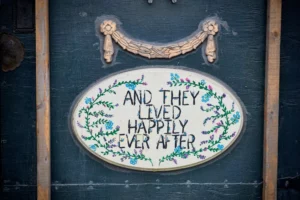I enjoyed reading Ashley’s post “Bring Back the Dinner Date.” I know I felt similar frustrations during my single years. The group hang-outs, Facebook and text message flirtations, and ambiguous coffee dates got old, and caused a lot of heartache.
I admit, the times I got a straight-forward date offer were refreshing … but not necessarily easier. There were basically four ways a first date could go:
1. We both liked each other and wanted to go on more dates. (The way we probably both HOPED it would go.)
2. The guy enjoyed spending time with me and wanted a second date, but I did not reciprocate.
3. I enjoyed spending time with the guy and hoped he would ask me on a second date, but he did not reciprocate.
4. We both had a terrible time on the date and were totally fine with never spending time together again.
As you can see, two of these four outcomes introduce a whole new set of problems. Back in the 1950s (or whenever going on dates became vogue) a girl could go on a dinner date with a different guy every Saturday night, and it was no biggie. But those days are gone. Now a date — even a first date — means something. And a straight-forward dinner date introduces some relational complexities.
I’ve heard quite a few single women, including myself, bemoan the fact that after one date a guy didn’t ask her out again. She even blames him, when he doesn’t ask her out again, for not offering enough clarity. But imagine the alternative with me. Joe calls Sarah:
Joe: Hi, Sarah.
Sarah: Hi!
Joe: I enjoyed having dinner with you …
Sarah: So did I!
Joe: … but, I just wanted to let you know that after getting to know you a little better I’m no longer interested in pursuing a relationship with you.
Ouch.
Though the guy would be offering clarity, this treatment doesn’t lessen the hurt Sarah feels — it may even increase it. Then, let’s say Sarah is the one who’s not “feeling it” after a dinner date with Joe. She must then either make up some excuse for why she can’t go out again (“I just want to be friends;” “I’m not ready for a relationship,” etc.), go out for one or two more “pity” dates, or say some version of the hard truth, “I’m just not interested.”
So while I agree that clear intentions in dating are nice (and let’s face it, the most honest approach), we also shouldn’t glamorize the “dinner date” as the solution to all of our dating woes. Do I think it’s a good thing for a guy to ask a girl out on a “real date” when he’s interested in her? Absolutely. But at that point, both parties need to realize that the direction and details of the relationship won’t necessarily be clear and easy just because he did. They are going to need to have grace for the other person and recognize that the outcome of their date may still be less-than-hoped-for.
What do you think? A dinner date may be a good start, but how can men and women navigate the resulting complexities with grace? When intentionality goes awry — and the date doesn’t result in the Hollywood ending — how should they respond? When the date ends in option No. 2 or 3, then what?











